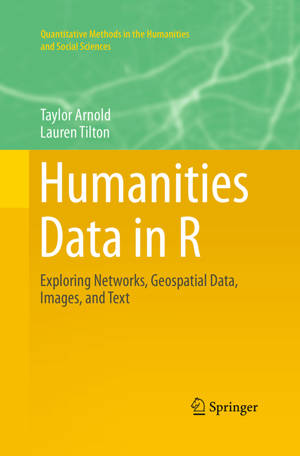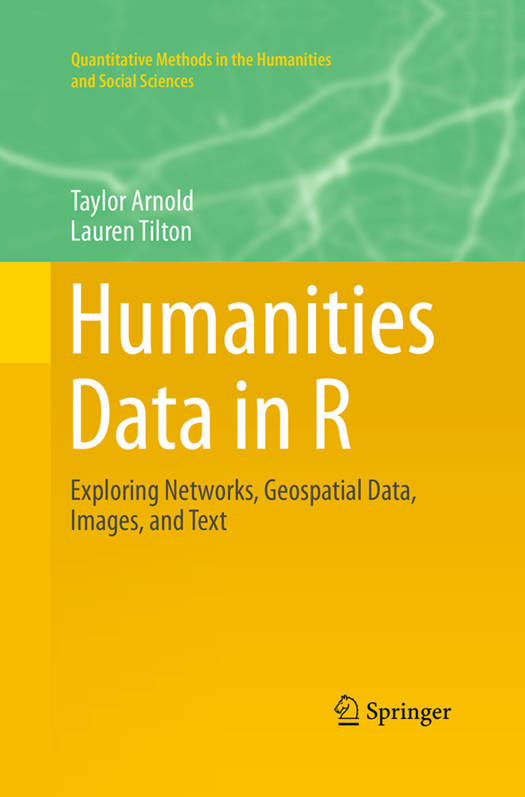
- Afhalen na 1 uur in een winkel met voorraad
- Gratis thuislevering in België vanaf € 30
- Ruim aanbod met 7 miljoen producten
- Afhalen na 1 uur in een winkel met voorraad
- Gratis thuislevering in België vanaf € 30
- Ruim aanbod met 7 miljoen producten
Zoeken
Humanities Data in R
Exploring Networks, Geospatial Data, Images, and Text
Taylor Arnold, Lauren Tilton
€ 69,45
+ 138 punten
Uitvoering
Omschrijving
This pioneering book teaches readers to use R within four core analytical areas applicable to the Humanities: networks, text, geospatial data, and images. This book is also designed to be a bridge: between quantitative and qualitative methods, individual and collaborative work, and the humanities and social sciences. Humanities Data with R does not presuppose background programming experience. Early chapters take readers from R set-up to exploratory data analysis (continuous and categorical data, multivariate analysis, and advanced graphics with emphasis on aesthetics and facility). Following this, networks, geospatial data, image data, natural language processing and text analysis each have a dedicated chapter. Each chapter is grounded in examples to move readers beyond the intimidation of adding new tools to their research. Everything is hands-on: networks are explained using U.S. Supreme Court opinions, and low-level NLP methods are applied to short stories by Sir Arthur Conan Doyle. After working through these examples with the provided data, code and book website, readers are prepared to apply new methods to their own work. The open source R programming language, with its myriad packages and popularity within the sciences and social sciences, is particularly well-suited to working with humanities data. R packages are also highlighted in an appendix. This book uses an expanded conception of the forms data may take and the information it represents. The methodology will have wide application in classrooms and self-study for the humanities, but also for use in linguistics, anthropology, and political science. Outside the classroom, this intersection of humanities and computing is particularly relevant for research and new modes of dissemination across archives, museums and libraries.
Specificaties
Betrokkenen
- Auteur(s):
- Uitgeverij:
Inhoud
- Aantal bladzijden:
- 211
- Taal:
- Engels
- Reeks:
Eigenschappen
- Productcode (EAN):
- 9783319366715
- Verschijningsdatum:
- 23/08/2016
- Uitvoering:
- Paperback
- Formaat:
- Trade paperback (VS)
- Afmetingen:
- 156 mm x 234 mm
- Gewicht:
- 326 g

Alleen bij Standaard Boekhandel
+ 138 punten op je klantenkaart van Standaard Boekhandel
Beoordelingen
We publiceren alleen reviews die voldoen aan de voorwaarden voor reviews. Bekijk onze voorwaarden voor reviews.








